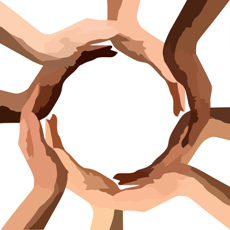Oranga Tamariki - Ministry for Children develops Māori Cultural Framework, app
Mon 17 Dec 2018
Oranga Tamariki - Ministry for Children has published a Māori Cultural Framework. The framework is designed to give Oranga Tamariki staff a ...

Oranga Tamariki - Ministry for Children has published a Māori Cultural Framework.
The framework is designed to give Oranga Tamariki staff a deeper understanding of key Māori values, practices, concepts and events that have impacted Māori, to provide understanding and context for decision making.
The Māori Cultural Framework includes five overarching cultural principles for action:
- Mana Tamaiti
- Manaakitanga
- Whakamana Tāngata
- Mana Whenua – Kaitiakitanga
- Mana Motuhake – Rangatiratanga.
The Oranga Tamariki website says "The Framework is a starting point for us to better engage with and respond to our iwi and Māori partners, whānau and tamariki. It will evolve and grow as we mature as an organisation."
App to support framework
To support learning, Oranga Tamariki has also launched an app called Te Kete Ararau. The name was gifted by Te Atiawa. The app has the information from the framework, including options to listen to pronunciation, create pepeha, learn waiata and more. You can download the app for free for Apple devices or Android devices.
Watch the video from Oranga Tamariki on the framework and app:
Related information
Research project
Researchers from Ngā Pae o te Māramatanga are looking at how "... tikanga Māori empower the evaluation of the experience of Māori whānau in crisis to measure the performance of the Government’s new obligations in law to Te Tiriti o Waitangi." The first stage of the project is a legal and policy analysis of the Children, Young Persons, and Their Families (Oranga Tamariki) Legislation Act 2017. The researchers include: Associate Professor Khylee Quince, Dr Amohia Boulton, Professor Jacinta Ruru and Tania Williams.
Section 7AA of the Children, Young Persons, and Their Families (Oranga Tamariki) Legislation Act 2017 addresses Duties of chief executive in relation to Treaty of Waitangi (Tiriti o Waitangi):
"7AA Duties of chief executive in relation to Treaty of Waitangi (Tiriti o Waitangi)
(1) The duties of the chief executive set out in subsection (2) are imposed in order to recognise and provide a practical commitment to the principles of the Treaty of Waitangi (te Tiriti o Waitangi).
(2) The chief executive must ensure that—
(a) the policies and practices of the department that impact on the well-being of children and young persons have the objective of reducing disparities by setting measurable outcomes for Māori children and young persons who come to the attention of the department:
(b) the policies, practices, and services of the department have regard to mana tamaiti (tamariki) and the whakapapa of Māori children and young persons and the whanaungatanga responsibilities of their whānau, hapū, and iwi:
(c) the department seeks to develop strategic partnerships with iwi and Māori organisations, including iwi authorities, in order to—
(i) provide opportunities to, and invite innovative proposals from, those organisations to improve outcomes for Māori children, young persons, and their whānau who come to the attention of the department:
(ii) set expectations and targets to improve outcomes for Māori children and young persons who come to the attention of the department:
(iii) enable the robust, regular, and genuine exchange of information between the department and those organisations:
(iv) provide opportunities for the chief executive to delegate functions under this Act or regulations made under this Act to appropriately qualified people within those organisations:
(v) provide, and regularly review, guidance to persons discharging functions under this Act to support cultural competency as a best-practice feature of the department’s workforce:
(vi) agree on any action both or all parties consider is appropriate.
(3) One or more iwi or Māori organisations may invite the chief executive to enter into a strategic partnership.
(4) The chief executive must consider and respond to any invitation.
(5) The chief executive must report to the public at least once a year on the measures taken by the chief executive to carry out the duties in subsections (2) and (4), including the impact of those measures in improving outcomes for Māori children and young persons who come to the attention of the department under this Act and the steps to be taken in the immediate future.
(6) A copy of each report under subsection (5) must be published on an Internet site maintained by the department."
Ministry of Social Development
The December 2018 newsletter from the Ministry of Social Development (MSD) provides an update on MSD's work related to Māori partnership, including work on the Te Hiku o Te Ika Iwi – Crown Social Development and Wellbeing Accord. The newsletter also has information about MSD's draft Māori Strategy and Action Plan which aims to improve experiences of MSD for Māori.
Children in state care - media
Recent media coverage has highlighted issues for children in state care, particularly Māori children and whānau. A Stuff investigation has found that since 2013, more Māori babies are being removed from their parents, with no change for non-Māori, saying:
"New [2016] laws making it easier for the state to take babies from their mothers are being blamed for a sharp increase in newborns being removed. A Stuff investigation has found more children are now born into care than at any time in the past decade, with around five babies a week now separated from their mothers. The majority of these pēpī are Māori."
Further details are in the media stories below.
Selected media
Catherine loves her kids, but they will never be in her custody again, Stuff, 12.12.2018
10,000 child removal orders in five years: Is this system working? Stuff, 12.12.2018
They learn to recognise the whiff of a p-house: Life as a social worker, Stuff, 12.12.2018
Who cares? When kids are taken by the State (interactive), Stuff
Children in state care fragile after ‘trauma upon trauma’, Radio NZ, 10.12.2018
Oranga Tamariki doesn't collate mental illness figures, Radio NZ, 10.12.2018
Image: Pixabay


